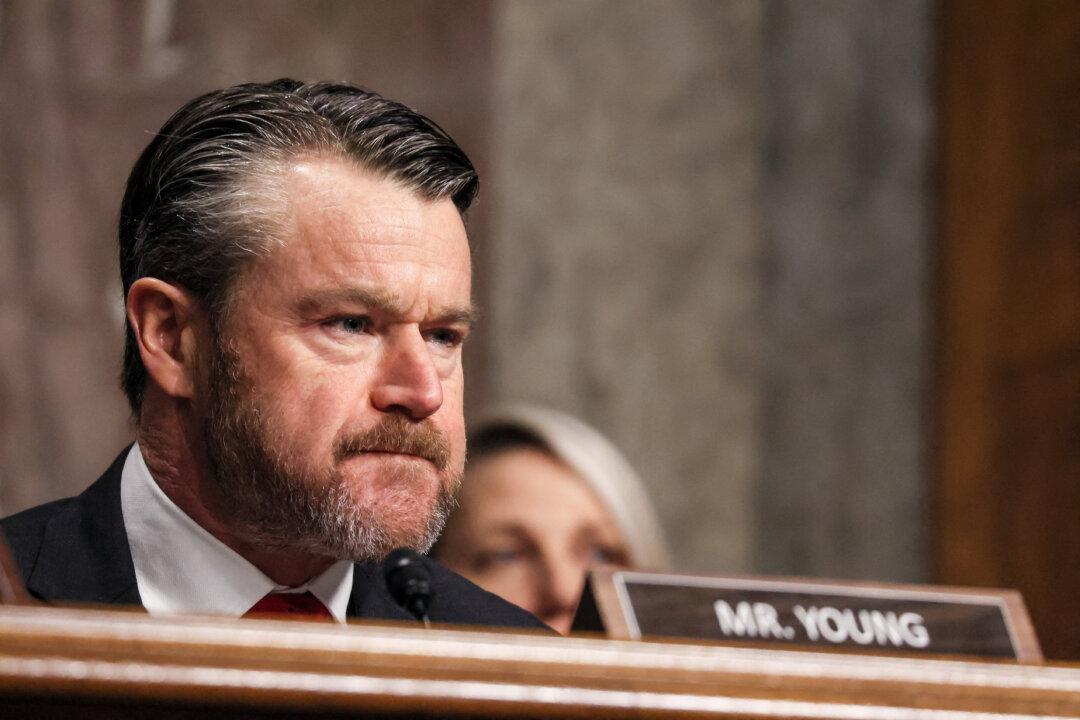A bipartisan group of senators introduced legislation on Feb. 24 to strengthen U.S. trade enforcement laws against China’s unfair trade practices.
Sens. Todd Young (R-Ind.) and Tina Smith (D-Minn.) led a group of more than a dozen senators in introducing the Leveling the Playing Field 2.0 Act, according to a press release. The legislation seeks to provide the Department of Commerce with new tools to address the impact of China-backed companies moving some of their production to other countries to circumvent American duties.





